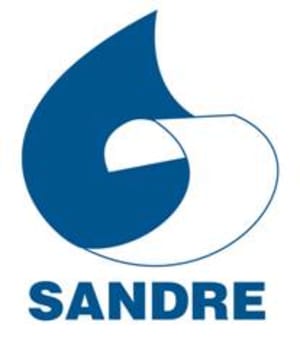SANDRE: an essential tool for water data interoperability

Ensuring the consistency, quality and circulation of environmental information is a strategic imperative for the implementation of public policies on water and biodiversity. To this end, the French government has developed a number of structural tools, of which SANDRE (French National Service for Water Data and Common Repositories Management) is one of the main pillars.

SANDRE presentation: the reference database for water data in France
Ensuring knowledge and interoperability of water data
Water governance relies in particular on shared, structured and reliable data. In a context marked by climate change and pressure on resources, having consistent and comparable information is a strategic lever for public policy.
In France and Europe, the structuring and interoperability of environmental data are at the heart of the mechanisms for steering the ecological transition. They promote transparency, strengthen coordination between public and private actors, and inform decisions relating to the sustainable management of water resources.
The Water Information System ( WIS ), created by the French government, embodies this ambition. Accessible to all via the eaufrance portal, it centralises and disseminates public data from a large network of operators, administrations and public institutions. This data is made available to all water stakeholders, from local authorities to researchers.
SANDRE: a common language for water data
SANDRE, French National Service for Water Data and Common Repositories Management, is at the heart of this system. It establishes the standards, nomenclatures and reference systems that enable all producers and users of water data to share a common language.
SANDRE defines the formats, structures and exchange rules necessary to make data interoperable between different information systems. This standardisation ensures the consistency of information produced at local, national and European levels.
Led by the French Agency for Biodiversity (OFB), SANDRE has benefited from the technical secretariat provided by the International Office for Water (OiEau) for over 30 years, thus ensuring the sustainability and neutrality of the system.
The SANDRE reference system is ISO 9001 (quality management) and ISO 27001 (information security) certified, demonstrating rigorous and secure management of public data.
The reference systems produced by SANDRE, such as data dictionaries, nomenclatures, exchange formats and correspondence sets, are freely accessible and regularly updated. They constitute an essential technical foundation for government departments, water agencies, local authorities, consulting firms, economic actors and research organisations.
An opening towards biodiversity and the marine environment
Current environmental issues are no longer limited to freshwater management alone. The interconnection of environments and growing concerns about biodiversity and coastal areas require an integrated approach to information systems.
France is gradually extending the WIS framework to other environmental components, such as biodiversity and the marine environment. From 2026 onwards, OiEau will also provide technical secretariat services for information systems dedicated to these areas, in support of the OFB and the relevant ministries. This development reflects a clear desire for consistency and continuity between the various sources of information relating to ecosystems.
The aim is to build digital continuity between data on water, natural environments and biodiversity in order to improve understanding of ecological interactions and optimise the implementation of public policies.
Preparing the future: artificial intelligence and knowledge management
The digital transition has transformed the uses associated with environmental data. The rise of artificial intelligence, automation and knowledge management approaches is opening up new perspectives in terms of analysis, sharing and exploitation of information.
These technologies facilitate the detection of weak signals, the anticipation of changes in aquatic environments and the optimisation of management strategies. The integration of machine learning models enables earlier identification of anomalies and in-depth modelling of climate change scenarios.
In line with this approach, OiEau, working on behalf of the OFB and institutional partners, is investing in skills development, strengthening innovation and promoting a shared data culture within professional water and biodiversity networks.




